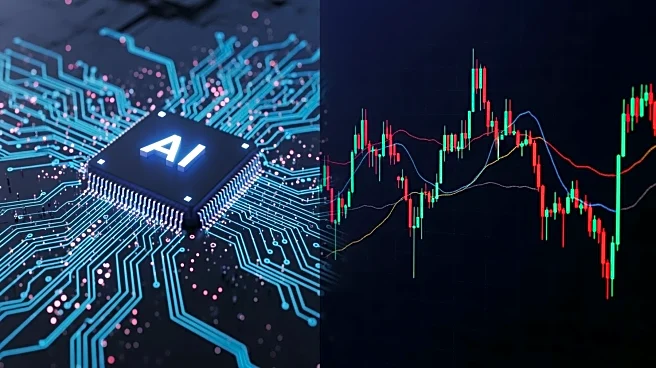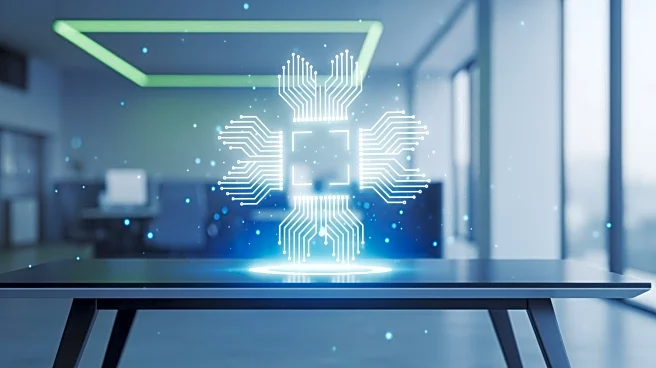What's Happening?
The U.S. stock market is experiencing significant debate over the potential impact of a perceived AI bubble. Despite AI startups accumulating nearly $1 trillion in valuations, concerns are rising about
the sustainability of these investments. Major U.S. tech companies like Microsoft, Amazon, Alphabet, and Meta Platforms are projected to spend almost $400 billion on AI infrastructure by the end of the year. This surge in investment has led to warnings from financial institutions, including the International Monetary Fund and the Bank of England, about a possible stock market fallout similar to the internet bubble of the 2000s. However, opinions are divided, with some experts like Howard Marks suggesting that current valuations are not irrational, while others, including Jeff Bezos, caution about the risks of an 'industrial bubble.'
Why It's Important?
The potential AI bubble poses significant implications for the U.S. economy and global financial markets. If the bubble bursts, it could lead to a sharp decline in stock prices, particularly affecting tech stocks that have been driving market gains. This could result in substantial financial losses for investors and impact the broader economy. On the other hand, continued investment in AI could drive technological advancements and economic growth. The debate highlights the need for investors to carefully assess the risks and opportunities associated with AI stocks, as well as the broader implications for market stability.
What's Next?
As the debate continues, investors and financial analysts will closely monitor AI-related investments and stock market trends. The outcome of this debate could influence future investment strategies and regulatory responses. Stakeholders will need to consider the balance between fostering innovation and managing financial risks. The ongoing discussion may also prompt further analysis and research into the long-term impact of AI on the economy and financial markets.
Beyond the Headlines
The potential AI bubble raises ethical and cultural questions about the role of technology in society. As AI continues to evolve, it could lead to significant changes in various industries, affecting employment and societal norms. The debate also underscores the importance of responsible investment practices and the need for transparency in financial markets. Long-term, the outcome of this situation could shape the future of technological innovation and its integration into everyday life.









